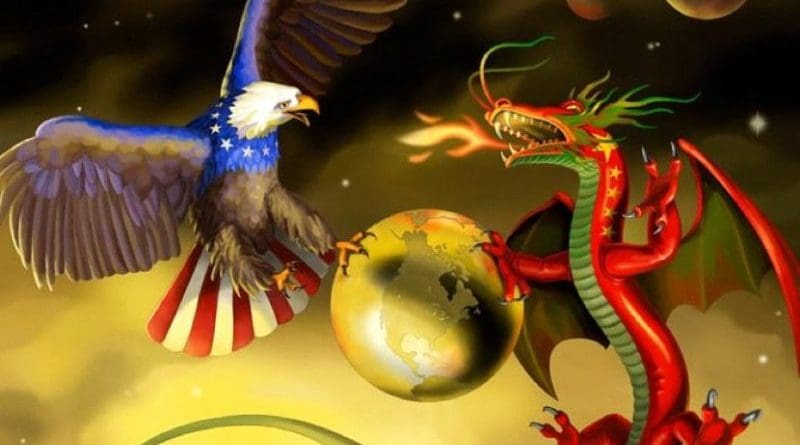The Bright Side Of Trade War With China? – OpEd
By Rev. Ben Johnson*
This year marks the 40th anniversary of one of the most consequential anti-poverty programs in human history.
Now, there is evidence that its spillover effects may lift millions more out of dire need.
In 1978, 18 farmers from the Chinese village of Xiaogang secretly signed “the document that changed the world.”
Madsen Pirie of the Adam Smith Institute writes:
A few years earlier they had seen 67 of their 120 population starve to death in the “Great Leap Forward” Now they took matters into their own hands. By flickering lights (none had seen electricity), they came forward in turn to sign a document dividing up the collective farm into individual family plots, whose owners could keep most of the proceeds of their labours.
They knew the dangers, and added a clause to the contract pledging that if any were betrayed and executed, the others would raise their children until aged 18. Following that historic contract, the village produced more food next harvest than it had in the previous 5 years combined. … China leapt from being a net importer of food into being a net exporter, and the Chinese economic miracle was launched.
The new openness to enterprise, private property, and investment led to China’s meteoric economic rise. Now, Donald Trump’s tariffs are encouraging manufacturers to take their factories elsewhere.
Ian Chen, CEO of a Chinese technological exporter, said that Trump’s tariffs have his fellow manufacturers “seriously considering setting up a backup production line in Malaysia or Vietnam to prepare for the worst.”
This exodus did not begin with the trade war. As with the EU’s purchase of U.S. soybeans, the tariffs expedited a natural market process that was already well underway. “The recent escalation of costs in China is making us relocate in order to be competitive,” said S. Kesavan, the Vietnam head of Jabil Circuit, a U.S. electronics manufacturer – in 2012. “Companies have been slowly moving their production lines to Malaysia, Vietnam, and elsewhere in Southeast Asia to avoid rising wages and land costs,” Forbes reported.
Chinese workers have followed the same evolution as their counterparts around the world. Desperate for jobs, they welcomed low wages, dangerous conditions, and menial tasks. As they became more productive, they could demand higher wages and shift to other lines of work. Chinese manufacturing workers saw their hourly wage rise 60 percent between 2011 and last year.
Now, China’s blue-collar workers make about three-times as much a month as those in Vietnam, and investors have taken note. The search for lower production costs has moved opportunity farther to the Global South.
Critics might see the process of investors moving to lower-wage nations as evidence of unbridled greed and cupidity. But there are at least two factors worth bearing in mind.
First, if even the state-owned industries of the world’s largest socialist regime engage in outsourcing to pay “exploitative” wages, perhaps socialism is not as committed to workers’ well-being as its followers believe.
More importantly, this kind of investment has undeniably benefited the world’s most marginal populations. At the same time as jobs have crossed borders, poverty in Vietnam has fallen – from 60 percent in the 1990s, to 21 percent in 2013, and just 10 percent in 2016. As Adam Smith wrote in his famous “invisible hand” passage, “By pursuing his own interest, [a person] frequently promotes that of the society more effectually than when he really intends to promote it.”
Much of this is natural and organic. But job creation due entirely to trade tariffs may eventually revert to the norm, costing displaced workers both the jobs artificially produced and the time they could have used to develop their comparative advantage in another industry.
But low wages don’t explain everything: After all, laborers in Malaysia earn more than their Chinese competitors. Why would investors move there? Malaysia is the 22nd freest country in the world, according to the Heritage Foundation. The nation has one of the world’s most business-friendly environments, including offering manufacturers tax incentives that shelter 70 percent of their income.
“Malaysia is one of the most open economies in the world,” the World Bank adds. “Openness to trade and investment have been instrumental in employment creation and income growth.”
As a result, Malaysia has virtually wiped out poverty. While 17 percent of its population lived in poverty in 1990, that number crashed to 0.4 percent in 2016. The bottom 40 percent of the population saw its income rise more than the rest of society, according to the anti-poverty Borgen Project. Now Prime Minister Mahathir Mohamad is focusing on improving the lot of his less affluent citizens by offering long-term tax credits to attract white-collar jobs “from China or any other country.”
The candlelight signing of a furtive farming compact in Xiaogang four decades ago lit the way to China’s economic prosperity. Its beams shone beyond its borders, as the investment it generated has spilled over to raise the living standards of its neighbors. People of faith should take solace in the growing security of once-starving people, hope that the light shines into the darkest corner of the earth.
We must realize that candle is held in the invisible hand, not clutched in the iron fist of the state.
About the author:
*Rev. Ben Johnson is a senior editor at the Acton Institute. His work focuses on the principles necessary to create a free and virtuous society in the transatlantic sphere (the U.S., Canada, and Europe). He earned his Bachelor of Arts in History summa cum laude from Ohio University and was inducted into Phi Beta Kappa.
Source:
This article was published by the Acton Institute.

